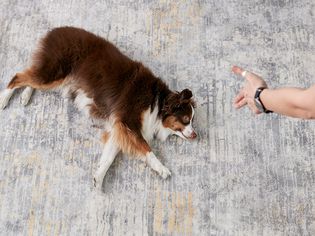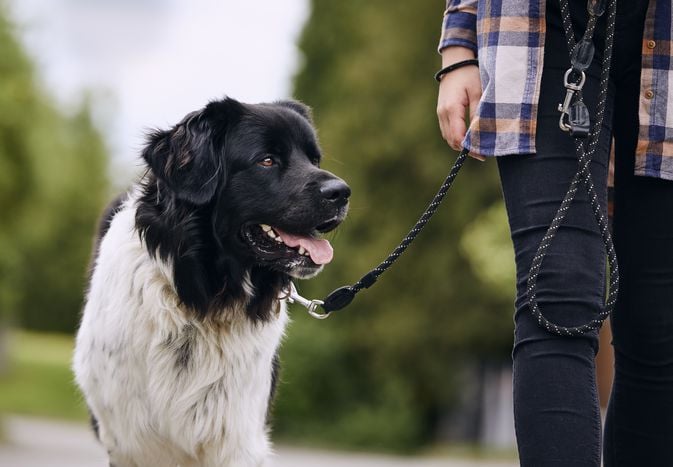Normal puppies hear much better than we do, but some are born deaf or are genetically predisposed to deafness. Dalmatians and Jack Russell Terriers may inherit a nerve disorder of the ear that causes deafness.
Aging dogs commonly suffer hearing loss, and some become completely deaf, but you won’t have to worry about that for many years. But a puppy may suffer hearing loss at birth or any age from an ear infection, ear mites or chronic otitis. Hearing loss can be accelerated by damage from loud noises. Dogs that hunt and are exposed to gunshots for years and years are more prone to damage. Chronic ear infections may also result in hearing loss.
A normal dog typically hears the same low-pitched sounds as humans, as well as frequencies as high as 100,000 cycles per second. People can only hear sound waves up to 20,000 cycles per second. Puppies that startle easily or ignore interesting sounds may suffer from hearing loss.
Congenital Deafness
Puppies may be born deaf when the nerves of the ear fail to properly form. Congenital deafness is often associated with merle or piebald coat patterns. Commonly affected breeds include the Dalmatian, Australian Shepherd, Old English Sheepdog, Collie, Shetland Sheepdog, and Bull Terrier. Ethical breeders are aware of potential problems and are working to eliminate deafness in these dogs through stringent breeding practices.
You may not immediately be aware your puppy is deaf. Specialized electrodiagnostic tests available at some veterinary universities can determine the extent of hearing loss. Most owners realize there's a problem during training when voice commands are ignored or other noise fails to draw the puppy’s attention.
Deaf dogs may bark less than other dogs, and the voice may sound odd. They frequently develop behavior problems because of their inability to understand human communication, and because they may be easily startled or frightened by the unexpected. Some deaf dogs may be able to hear the frequencies of special whistles, or feel the vibration of a stomped foot, and may compensate enough for day-to-day living.
Dogs with a gradual hearing loss tend to do well as long as they remain in familiar, safe surroundings. Routine exams with the vet and ear cleaning is important to stay ahead of possible health problems. Dogs with hearing loss are a challenge for many owners but can be trained with patience to understand hand signals rather than voice commands.
Living With A Deaf Puppy
Dogs can’t tell us that they’re hard of hearing, and they compensate by paying more attention with their other senses. They watch owners and other pets more closely and cue off of their behavior to know that somebody’s at the door, for example. Deaf puppies also pay closer attention to vibration and air currents—the breeze made by an open door may cue them you’ve come home from work. Even when they can’t hear the can opener, the pet’s internal “clock” will announce suppertime.
- Use visual signals rather than your voice to communicate with your deaf puppy. Dogs easily learn to respond to hand signals, the beam of a flashlight, or the porch light flicked on and off, to come inside for dinner.
- A “dog whistle” that uses high-frequency sound waves may still be detectable to your hearing-impaired pet even when he can no longer hear your voice.
- The vibration from striking the lowest notes on the piano may be felt, even when your pet can’t hear—use that as a signal to call your pet.
- An electronic collar that “vibrates” works great as a signal but must be used properly and removed from the pet daily. These collars are available at pet supply stores and through the Internet.
- Deaf pets startle more easily and may bite out of reflex as a result. Always approach your pet so he sees you coming, and stomp your foot or give him some other warning before petting him to avoid being accidentally nipped when you startle him.
- Deafness also raises safety concerns. Will your deaf dog be able to hear and avoid traffic? Supervise outings or ensure the enclosed yard is safe.
Deaf puppies are still happy pets. Some hearing loss is a natural, normal part of the aging process. Making simple accommodations for a hearing-impaired pet isn’t difficult. Besides, it’s what we do for our friends.










Comments on " Training Deaf Puppies and Dogs" :